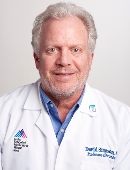Biography
Specialties
Neurology
Neurology
Research Topics
HIV/AIDS, Immune Deficiency, Infectious Disease, Motor Control, Neurology, Neuromuscular System, Neurophysiology, Neurotoxicology, Pain, Rehabilitation, Spinal Cord, Stroke, Viruses and Virology
HIV/AIDS, Immune Deficiency, Infectious Disease, Motor Control, Neurology, Neuromuscular System, Neurophysiology, Neurotoxicology, Pain, Rehabilitation, Spinal Cord, Stroke, Viruses and Virology
